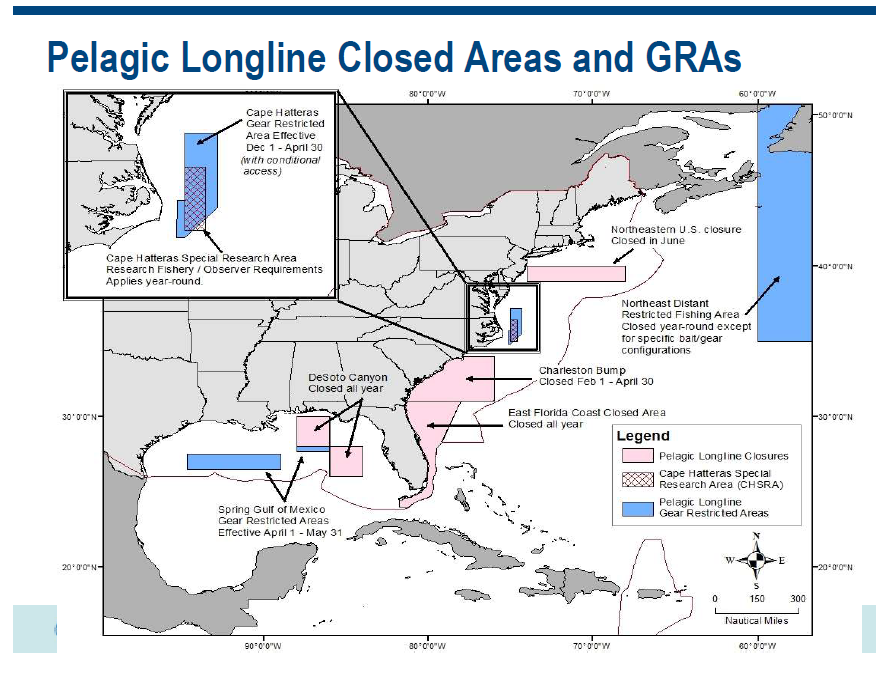The National Marine Fisheries Service (NMFS) is proposing initiatives that once again ignore the recreational fishing community and do not benefit billfish conservation. NMFS seeks to reinvigorate commercial catch by loosening regulations on the longline fishery. This comes despite the fact that NMFS scientists and scientists of the International Commission for the Conservation of Atlantic Tunas (ICCAT) have made it clear that fishing pressure must be reduced on overfished marlin and other species – or to use a precautionary fishing approach. These new adjustments are irresponsible and show a true lack of regard for our community, the economic capacity of it, as well as the conservation of billfish, marine mammals, sea turtles, and sharks.
The new NMFS proposal is twofold:
- Cut in half the time that the commercial longline fishery will be required to use “weak hooks” in the Gulf of Mexico from year-round to just January to June. This will result in increased bycatch of all the species listed above. It will also damage the recreational community by decreasing billfish numbers and hurting the responsible sportfishing tournaments. This could cripple both fish populations and the thousands of jobs that the recreational fishing industry creates.
- Loosen regulations in the four Gear Restricted Areas (GRA) of the Gulf of Mexico, NJ, and Cape Hatteras. Once again, this will increase billfish and other non-target species bycatch mortality to levels that are not sustainable. It will also unjustly penalize the recreational community. If any change is to occur, it must be done with data collected by an official government observer first so there is no bias.

The Billfish Foundation strongly opposes these initiatives. The recreational offshore fishing and boating community/industry support responsible fishery management and conservation, but the current initiatives do not put forth fair and equitable options for the recreational fishing and boating industry nor do they advance billfish conservation and that of other overfished species. Below is our Call to Action to the fishing community.
We will be releasing our official comments later on the 30th. To make your voice heard, you can submit your own comments here. To stay up-to-date on all things affecting billfish and the recreational fishing community, subscribe to our newsletter, become a member, or follow us on social media, @TheBillfishFoundation.
Open Letter:
Call to Action: CallToAction19HMS (2)






